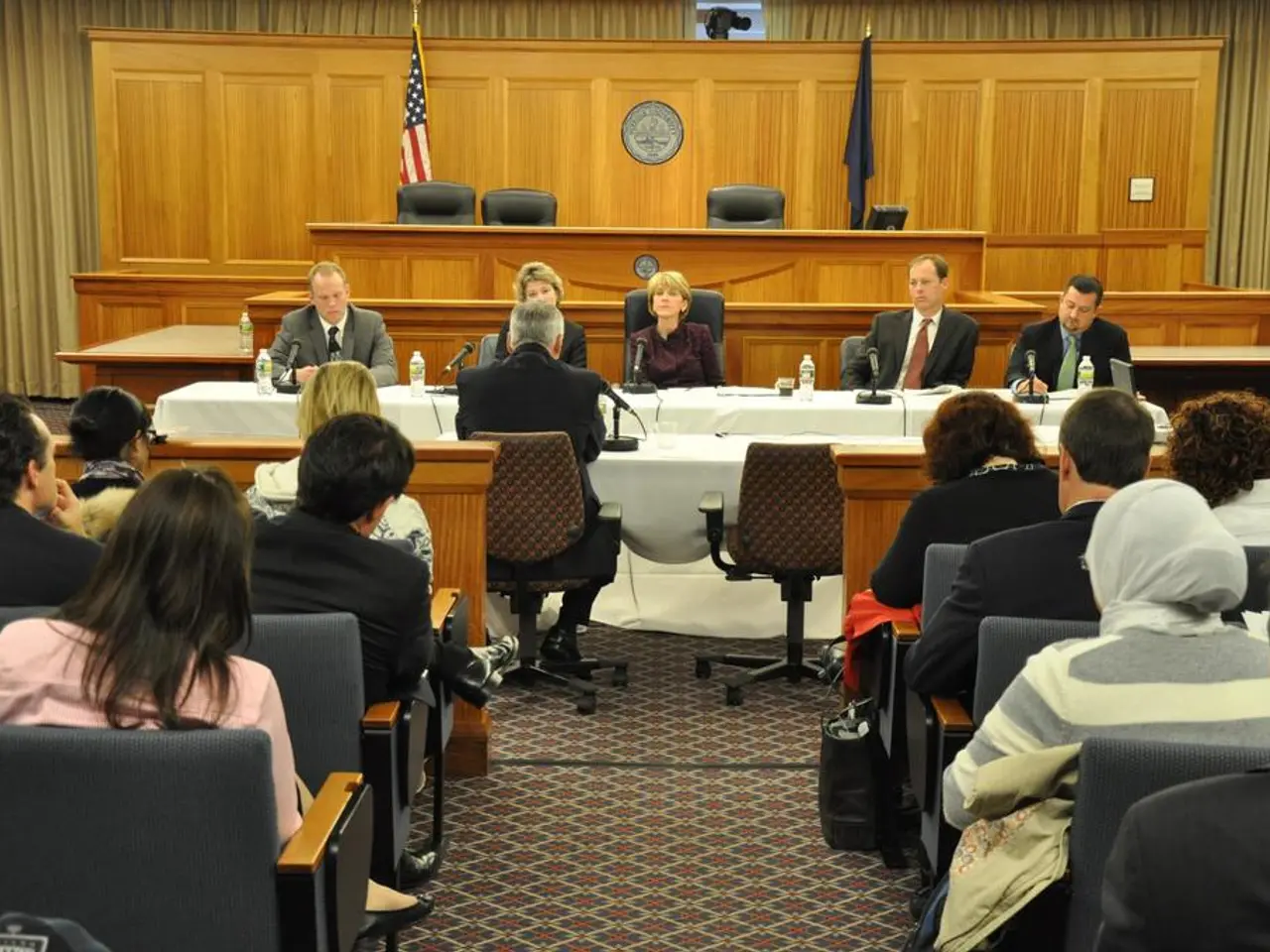A fresh German face aims to propel Europe forwardward
Hitting the ground running in Brussels: Merz's EU mission begins
Chancellor Friedrich Merz sets foot in Brussels, aiming to reinstate Germany as a driving force in the EU. "I'm here to ensure Europe thrives in the coming years," Merz stated during his first summit. With a robust agenda tackling vital EU issues, such as sanctions against Russia, Israel, and the trade conflict with the US on the table, these subsequent weeks and months will prove crucial.
Old acquaintances, new challenges
Merz's return to European politics marks a reunion with old faces. As a former member of the European Parliament, he served from 1989 to 1994. His predecessor, Olaf Scholz (SPD), has drawn sharp criticism from Merz for perceived passive or instructive behavior in Brussels. Merz intends to set a new course, revitalizing Germany's authentic leadership position in the EU. In his government declaration, he pledged the revival of the European ideal of freedom and peace, solidifying Europe's claim to global significance.
Migration, a hot button issue
Before the summit's formal commencement, Merz met with hardliners on EU migration policy, including Italian Prime Minister Giorgia Meloni, Danish Prime Minister Mette Frederiksen, and Dutch Prime Minister Dick Schoof. These discussions centered on facilitating returns. Over the summer of 2024, Germany reinstated border controls, citing the fight against illegal migration, accompanied by subsequent strengthening of these controls in May, causing friction with neighboring countries like Poland and Luxembourg.
Facing the heat on Israel
At his first summit, Merz encountered strong opposition regarding Israel, with Spanish Prime Minister Pedro Sánchez questioning his double standards for not enforcing penalties for the country while passing 18 sanctions packages against Russia. Merz rejected these charges, stating that suspending or terminating agreements with Israel is not an option for the federal government.
A crucial test: the trade dispute with the US
The ongoing trade conflict with the US may serve as the first major test for Merz. The topic is to be discussed at the summit, with the threat of new high tariffs looming if an agreement is not reached by July 9. To bring Russian President Vladimir Putin to the negotiating table to end the attack on Ukraine, Merz advocates for using economic pressure. He is expected to push for a rapid finalization of a trade deal with the US, working alongside leaders such as France’s Emmanuel Macron and Italy’s Giorgia Meloni to apply pressure on both parties. A balance must be struck to avoid a rushed deal that might disadvantage the EU, while also delivering favorable terms.
A crucial test: the trade dispute with the US
One of Merz's urgent priorities is the easing of the ongoing trade tensions between the EU and the US, with tariff threats and retaliatory duties posing risks to European exports. Merz has criticized Brussels' slow-paced Brussels' negotiating tactics and called for an immediate, focused approach to strike a favorable deal for the EU. Concerns abound in the EU about a potential deal skewing too heavily in favor of the US under Trump's administration, which could jeopardize EU trade interests. Merz is working in collaboration with leaders like France’s Emmanuel Macron and Italy’s Giorgia Meloni to exert pressure on the European Commission and the US government for a timely agreement.
Divided opinions on IsraelWhile the literature does not fully elucidate Merz’s stance on Israel, his foreign policy approach indicates a desire to strengthen Germany's international influence through proactive diplomacy and strategic partnerships. Given Germany's historical support for Israel, Merz's ambition to revive Germany's leadership in the EU and assertive global role implies a balanced approach to Israel that supports strong ties while carefully navigating intricate Middle Eastern dynamics.
Putting pressure on Russia
Situated at the heart of the EU-Russia conflict, Merz prioritizes the security of Ukraine as a matter of European stability. He advocates for lifting Germany's constitutional debt brake to boost defense spending and strengthen the Bundeswehr, anticipating a lengthy confrontation with Russia. As the US under Trump is seen as a less reliable NATO ally, Germany, under Merz, is positioning itself to lead European defense and response to Russian aggression. This entails continuing sanctions and support for Ukraine, alongside forging stronger alliances within Europe and NATO, while managing domestic political challenges and EU fragmentation risks.
Synthesis of Key Issues
- Urgent need to finalize a balanced EU-US trade deal to avoid unfavorable terms and escalating tariffs[3].
- Navigating foreign policy to increase Germany's influence at the EU and global stages, encompassing relations with Israel, through renewed Franco-German cooperation and strategic leadership[1][4].
- Building up Europe's defense and sanctions policies against Russia by boosting military spending and facilitating diplomatic cooperation, while handling internal political resistance and EU unity challenges[2][4][5].
Merz's success hinges on building coalitions within the EU, managing internal political opposition, and balancing the competing pressures of various international issues while delivering a clear, ambitious German leadership agenda on the European and global stages[2][5].
- Merz's meetings with EU leaders, such as Prime Minister Giorgia Meloni, Mette Frederiksen, and Dick Schoof, focus on revitalizing EU migration policy and facilitating returns, following Germany's reinstatement of border controls.
- The ongoing trade conflict with the US poses a significant challenge for Merz, as the first major test for his EU mission. He advocates for a swift and favorable resolution to avoid disadvantageous terms for the EU.
- Merz's foreign policy stance on Israel may indicate a balanced approach to maintain strong ties while carefully navigating complex Middle Eastern dynamics, reflecting Germany's historical support for Israel and Merz's desire to increase Germany's global influence.






